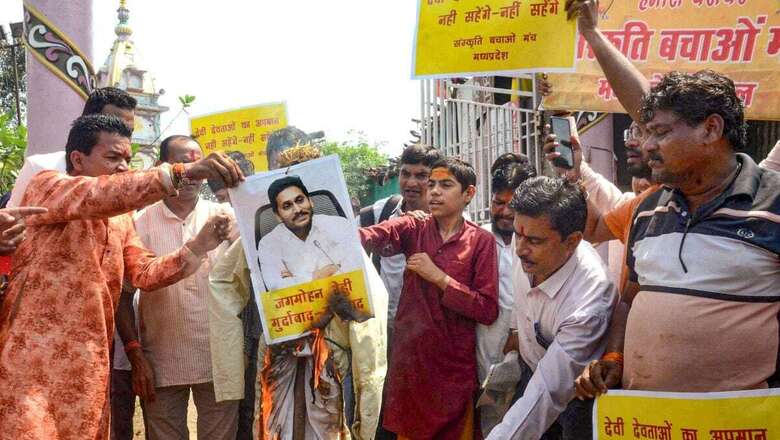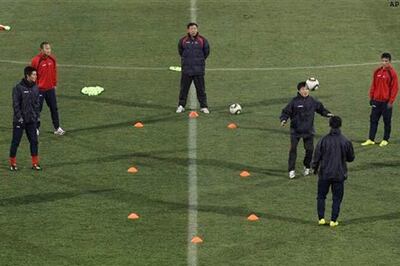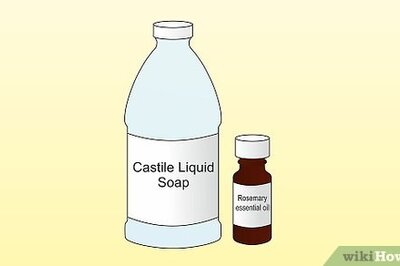
views
Tirumala Tirupati Devasthanam (TTD) will soon have its own in-house, hi-tech testing machinery to ensure the quality and purity of the ghee used to make the famous laddoos. This machinery will be donated by the National Dairy Development Board (NDDB) and is expected to be installed by December-January.
TTD does have its own lab-testing unit but the new equipment, which is being imported, will cover several parameters to ensure purity and meet food-safety standards, say TTD officials amid a row over supposed animal fat being found in the laddoo prasadam.
Speaking exclusively to News18, TTD Executive Officer Shyamala Rao said the machinery for such high-level testing needs to be imported and the process has already begun.
When asked how the quality of the laddoos and checks on adulteration would be conducted in the meantime, Rao said there would be random sampling and testing of ghee and other raw materials used to make the ‘prasadam’. These will also be tested in the existing TTD laboratory.
“Ghee will first be tested for sensory parameters in the TTD laboratory, which we have on the premises. We will also send samples to external laboratories if the in-house test fails. We will be sending samples randomly from time-to-time to external labs to maintain quality and purity,” Rao told News18.
Rao, earlier speaking to the media, said lab tests had revealed the presence of animal fat and lard in selected samples.
“All four reports of the samples gave similar results. So, we immediately stopped the supplies, and the contractor’s blacklisting was initiated. The procedure to impose penalties will also be started. Now, the legal process will begin,” he said.
The TTD’s Executive Officer also made it clear that while it adopts a thorough and strict vetting process for those supplying ghee to the temple, following the controversy, they will float a new tender based on the recommendations of the expert committee.
The focus on the adulteration of the laddoos from the famous Tirupati Tirumala temple continued as Union health minister JP Nadda sought a detailed report from Andhra Pradesh Chief Minister N Chandrababu Naidu and Union minister of state for home Bandi Sanjay also called for a CBI inquiry into the matter.
The lack of an in-house adulteration testing facility and regular testing of the ghee allowed suppliers to take advantage of the situation, said Rao during a media conference.
Lab test reports from NDDB’s Centre for Analysis and Learning in Livestock and Food showed the sample, labelled as cow ghee, “does not comply with the requirements of FSSAI for the tested parameters”. This meant the sample was adulterated and showed the presence of foreign fat and likely adulterants such as soybean, sunflower, rapeseed, olive, linseed, wheat germ, maize germ, cottonseed, fish oil, coconut, palm kernel fat, palm oil, beef tallow, or lard.
Another lab report, sample AB021252, was seen to comply with the FSSAI standard, but sample AB021253 of ghee taken on July 6 included an annexure stating that five S-values (used to determine the purity of milk fat) in the ghee were outside the acceptable range. This also indicates adulterants as mentioned above.
The annexure, however, mentions that there is a possibility of false positive results in some cases. These false positives can occur if the samples come from non-cow milk, bovine milk, or cows overfed on pure vegetable oils, underfed cows, or cows subjected to treatments such as cholesterol removal.
According to Rao, pure milk fat should have a reading between 95.68 and 104.32, “but all our ghee samples had values around 20, which means the ghee supplied is highly adulterated,” he stated in the press conference.
With several complaints about the poor quality of the Tirupati laddoos, the ruling TDP, which came to power in June 2024, formed a special committee to investigate the complaints. Dr Surendranath, a former scientist at the National Dairy Research Institute, dairy expert Dr Vijay Bhaskar Reddy, Dr Swarnalatha from Telangana Veterinary University, and Dr Mahadevan from IIM Bangalore were part of the committee. As part of their investigation, they collected samples of ghee, including one from a company called AR Foods, based in Dindigul, Tamil Nadu. AR Foods, which was one of the many bidders, had replaced Karnataka’s KMF after winning the tender during the Covid-19 pandemic.
“How could AR Foods win a tender to supply ghee at Rs 320 per litre when pure ghee actually costs Rs 1,000?” questioned TDP spokesperson Anam Reddy, pointing fingers at the previous Jagan Mohan Reddy-led YSRCP government for compromising on the quality of the ‘prasadam’ and hurting the sentiments of millions of devotees of Lord Venkateshwara.
AR Foods, in their defence, stated that they were one of many suppliers and that none of the lab reports directly mentioned their name or said that the three samples were from them. They insisted that the “adulterated” ghee sample could not be from AR Dairy Food Private Limited.
However, Rao claimed that the four ghee samples sent to NDDB were indeed from AR Dairy Food, and the samples were taken from four tankers that arrived on July 6 and July 12 this year.
In their media statement, AR Foods said their ghee passes through rigorous quality control and food safety tests, and they also have certification from FSSAI confirming that there was no adulteration in the samples taken from their consignment.




















Comments
0 comment